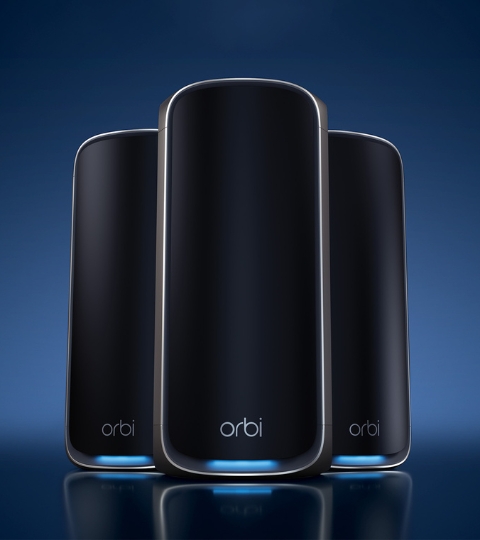FTF News checks in with Netgear about the networking gadgets that are permanent fixtures of our working lives.

Grygo is the chief content officer for FTF & FTF News.
It’s been a while since my last gadget-based-on-your-bonus report and I would be remiss if I didn’t mention that bonuses took a hit.
Many working on Wall Street and elsewhere have found that their bonuses delivered in 2024 shrunk compared to last year.
The average Wall Street bonus, based on performance in 2023, shrunk by two percent to $176,500, according to the Office of the New York State Comptroller (OSC), headed by Thomas P. DiNapoli.
In comparison, the average bonus handed out in 2023 was an average of $180,000.
The OSC bases its estimates on the data it gathers from members of the New York Stock Exchange (NYSE), owned by the Intercontinental Exchange (ICE).
Even so, it’s not a stretch to think that many working in the securities industry will have the means to invest in gadgets that make life and work a little easier to bear.
A case in point is the challenge of working remotely.
The pandemic forced us to learn the new rules of the cyber road. Many had to quickly learn what WiFi 6 or 7, virtual private networks, or VPNs, mean, and what routers and modems are for. We also got good at what higher gigabyte speeds can facilitate.
So, post-pandemic, many financial services firms and their internal teams are adjusting to hybrid situations — some days at home and some at the office. Maximizing the speed, bandwidth, and security of your network links for your home office has become paramount especially as the hybrid situation is a new reality for many firms.
Recently, Netgear, a networking company serving small- and midsize-businesses, participated in a special Pepcom event for NYC media and presented its wares.
FTF News got time with Valerie Motis, director of public relations and communications for Netgear, and asked a few questions about the networking gadgets that have become permanent fixtures of our working lives.
Q: Which Netgear offerings make sense for a financial services firm’s employees when they work from home? They will need optimal network links and reliable service.
A: Service depends on your service provider. You’ll want to ensure that the service you are getting from your ISP [Internet Service Provider] is adequate for the work you are doing.
Most ISPs these days offer speeds up to a gigabyte or more. They will also offer their own modem router or cable gateway to bring Internet into your home for which they will charge you a rental fee, which could mean hundreds of dollars per year out of your pocket for the life of the device.
Savvy money managers may opt to ditch the extra fee and purchase their own cable modem.
From there, professionals will want to maximize the investment they’ve made in high-speed Internet by ensuring they are realizing the speeds they pay for in every room of their home and beyond. For that, they’ll need a quality router or mesh system.
Routers such as Netgear’s Nighthawk RS700 offer the latest WiFi 7 technology and ultra-high performance for apartments and smaller homes.

The Orbi 970 series
For larger homes, a mesh system such as Netgear’s Orbi 970 Series provides speeds of up to 27 Gbps [gigabits per second], and coverage for more than 10,000 square feet.
Netgear routers stand as the first line of defense against evolving cyber threats and include security features such as automatic firmware updates, VPN support, cutting-edge WPA3 security, access control, and guest WiFi network options.
For added protection, both Orbi 970 and Nighthawk RS700 include a year of Netgear Armor Powered by Bitdefender, providing an automatic shield of security for connected devices and added privacy with VPN.
Unlike traditional endpoint antivirus products, Armor is built into the router as an all-in-one security solution, protecting computers, security cameras, baby monitors, and other IoT [Internet of Things] devices on the network and eliminating the need for multiple security subscriptions or software.
Q: Many financial services staff members have to work within a virtual private network (VPN). Is this a problem for Netgear’s offerings? If so, how is it fixed?
A: No problem at all.
Popular corporate VPN solutions like Zscaler and F5 support NAT traversal and are designed to work behind a router. These will work with almost any router, including those from Netgear.
However, legacy VPN clients using IPSec, L2TP, or PPTP require VPN passthrough on the router to function properly.
 Both Netgear Nighthawk and Orbi support VPN Passthrough, which is enabled by default, no user configuration is required. The router detects when a client is establishing a VPN connection and automatically opens the necessary ports to allow VPN traffic.
Both Netgear Nighthawk and Orbi support VPN Passthrough, which is enabled by default, no user configuration is required. The router detects when a client is establishing a VPN connection and automatically opens the necessary ports to allow VPN traffic.
Ports are closed once the VPN connection is terminated, ensuring network security.
Q: You mentioned new versions of the Orbi line were slated to be released in June. What can you say about the new versions?
A: New products are under embargo until June 11.
Before that, we can say they we will continue to add to both the Orbi and Nighthawk lines to provide offerings at various price points and with varying features.
Need a Reprint?